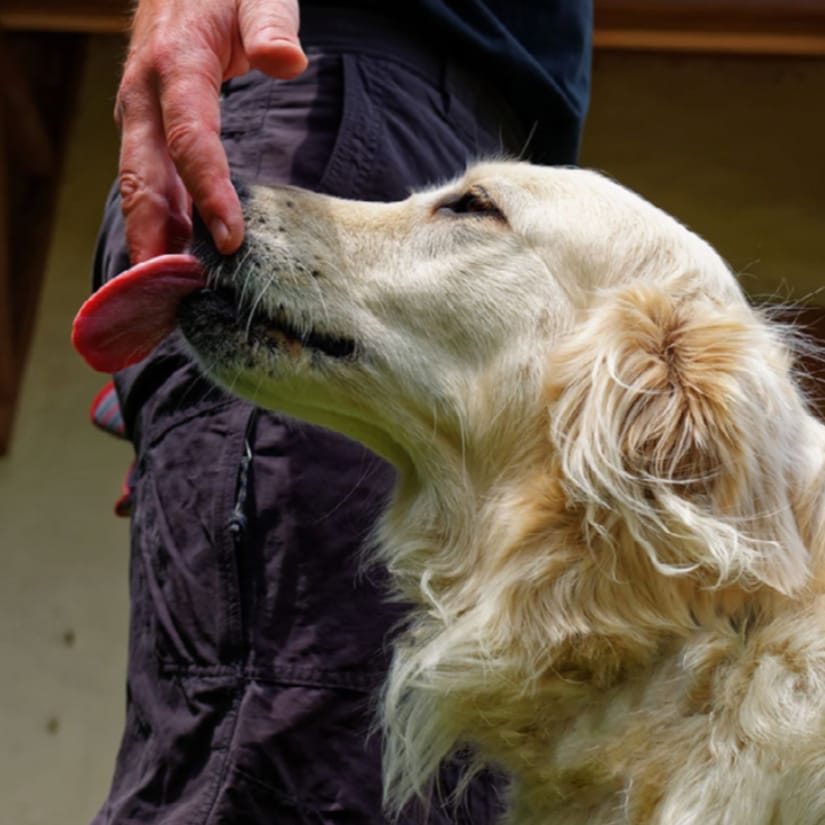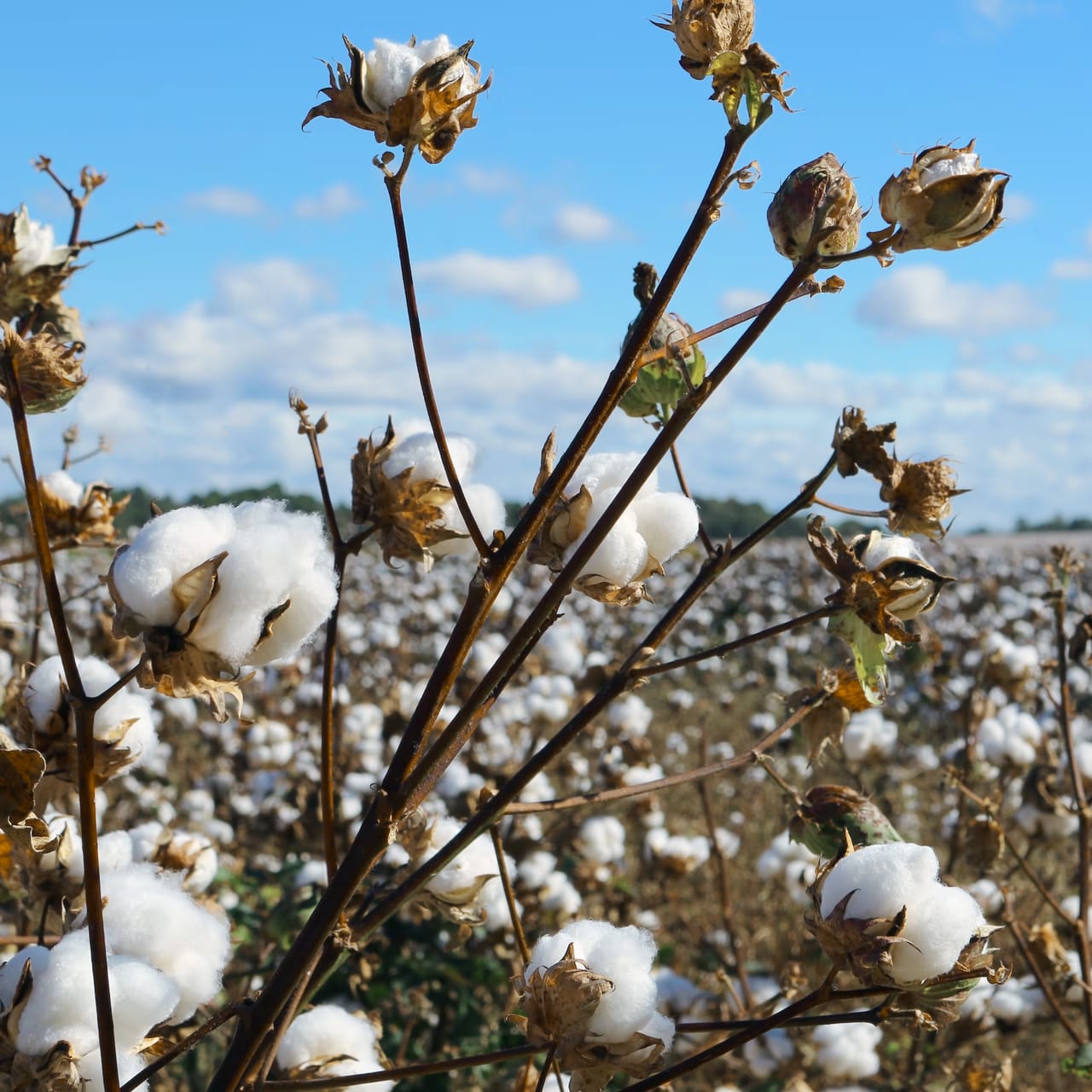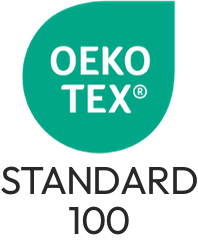At molly mutt there's nothing more important to us than your dog's comfort and safety. As such, we ensure that none of our items are made with harsh chemicals and our fabrics are certified non-toxic.
Absolutely no ...

designed to be together
At molly mutt we build on the age-old bond between dogs & humans by designing better ways for us to be together.
We're privileged to be stewards of this bond, and as such we ensure that no toxic or harmful chemicals are used at any point in our production process.

certified organic cotton
In recent years we've strengthened our sustainability commitments by partnering with The Climate Change Project and the Global Organic Textile Standard (GOTS).
These industry leaders are helping to shift the fashion and textile industry toward organic fibers that will help to reduce negative environmental impact and prioritize human (and pet) well-being.
What are organic fibers?
- Sustainable: Organic fibers are derived from organic agriculture, a regulated and certified method for sustainable land management. Organic is the only legislated standard for environmentally friendly agriculture, and it is a proven method to contribute to sustainability goals.
- Plant or Animal based: Organic fibers can be plant-based, such as cotton, linen, or hemp, or animal-based, such as wool, silk or cashmere.
- Free of toxic chemicals: Organic fibre production prohibits the use of harmful pesticides, herbicides, and synthetic fertilizers, all of which have been proven to negatively impact ecosystems and/or human health.
- Non-GMO: The use of Genetically Modified Organisms (GMOs) is prohibited in organic agriculture. This is due to potential and demonstrated adverse effects on human and ecosystem health associated with GMOs. Organic fibers are thus derived from agricultural systems that promote biodiversity and support ecosystem functions.
What are the benefits of organic fibers?
- Promote Biodiversity: By eliminating toxic chemicals and synthetic fertilizers, organic fibre production promotes healthier ecosystems, reduces water pollution, and conserves biodiversity.
- Improved human health: The absence of harmful substances in organic fibre cultivation minimizes the risk of health issues that can be caused by exposure to chemical residues, both for the farmers and the end user.
- Enhanced sustainability: Organic fibre production supports sustainable farming practices that promote soil fertility, water conservation, and long-term ecological resilience.
- Enhanced farmer autonomy and resilience: Organic farmers, utilizing botanical extracts and natural soil amendments, have less reliance on external inputs (e.g. pesticides and fertilizers). Additionally, necessary crop rotation ensures economic resiliency, and organic fibers are part of organic food systems that promote food security and healthy communities.
Why does certification matter?
- Authenticity and Trust: Certification serves as a powerful tool to establish the authenticity of organic fibers, instilling confidence in consumers and businesses alike. It provides a reliable guarantee that the products they purchase or work with are genuinely organic, backed by rigorous requirements and independent verification. Unlike self-claims, which lack external validation, certification offers a tangible proof of integrity and builds trust in the organic supply chain.
- Traceability: Certified organic fibers offer traceability, allowing for the tracking of the fiber's journey from the finished product back to the farm it originated from. This traceability provides transparency and accountability, ensuring that the organic claims can be verified and validated. It enables consumers and businesses to have confidence in the authenticity of the fibers.
- Compliance: Organic fibre certification ensures compliance with regulations and standards related to organic labelling and sustainability claims. By obtaining certification, companies can demonstrate their commitment to responsible practices and avoid potential legal issues or accusations of greenwashing.
- Transparency: Certification promotes transparency by providing clear information about the origin and production methods of the fibers, empowering consumers to make informed choices aligned with their values.
Source: Organic Fibers - Global Organic Textile Standard
our certifications

Our fabrics have been independently tested and certified in accordance with OEKO-TEX® Standard 100 for Product Class 1—the highest and most stringent class: safe for babies and toddlers.
We chose to comply with the strictest criteria to ensure that all of our products are safe for even the most sensitive skin, including your dog's.

Organic
Certified by GOTS-20200669
The Global Organic Textile Standard (GOTS) is recognized as the world's leading processing standard for textiles made from organic fibers.
A product can only be GOTS certified when the entire production chain — from harvesting of the raw materials to labelling the finished product — meets the requirements.
